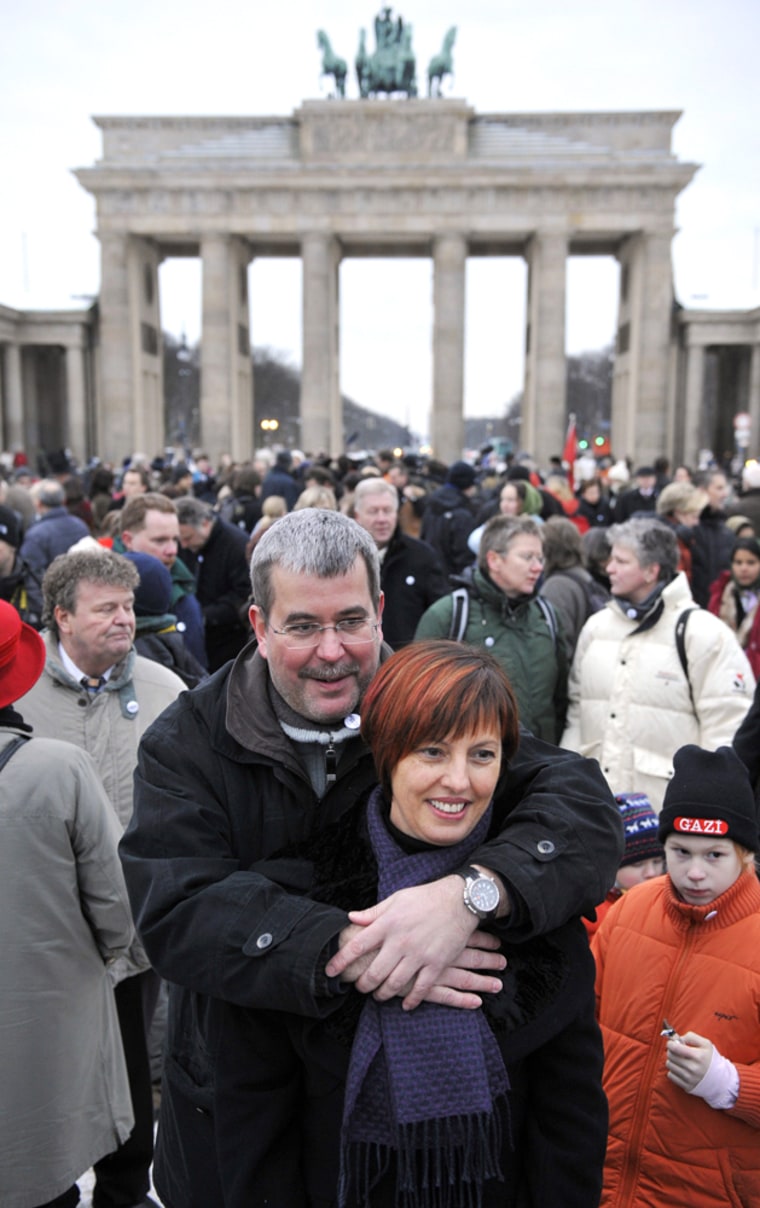Chancellor Angela Merkel chose the archives of the dreaded East German police Thursday to begin nearly a year of commemorations marking the 20th anniversary of the fall of the Berlin Wall.
The anniversary itself will be marked with a three-day festival from Nov. 7-9 at the Brandenburg Gate, the symbol of Germany's postwar division and then of its unification. The gate lay for years behind the East Berlin side of the wall.
There will also be an artistic re-enactment of the fall of the wall — a historic development that led to the end of East Germany, where Merkel grew up.
Her visit to the archives Thursday fell on the anniversary of the day 19 years ago when East German citizens protested outside the headquarters of the Stasi, or secret police, demanding its files be made accessible.
The Stasi collected information on things such as suspicious travel and potential dissent on nearly all East Germans, using an army of informants that pitted friends and neighbors against each other.
The contents of the Stasi files have ended political careers and prompted numerous court cases. But the documents remain open for research as the reunified Germany grapples with its past.
"We must not take freedom for granted," Merkel said after touring the archives. "Freedom and democracy must be worked at continually."
Reunited at last
Marianne Birthler, who heads the agency that manages the Stasi archive, said a new generation is using the files to unravel the legacy of the failed communist state. Engaging in such studies may make people "more capable of resisting those who seek authoritarianism," Birthler said.
East and West Germany were reunited Nov. 9, 1990 — a year to the day after the wall fell. The anniversary is bittersweet for some former East Germans, who say not enough has been done to bring officials from the East German regime to justice.
The former inmates are very dissatisfied about what happened after the fall of the wall, said Hubertus Knabe, who directs the museum at Hohenschoenhausen, where the Stasi detained and interrogated thousands of political prisoners over three decades.
"The perpetrators have, as a rule, not been punished," he said.
After reunification, hundreds of former East German border guards and officials were convicted for shootings at the heavily fortified border between the two German states, but most received suspended sentences.
In other commemorations this year, the annual Berlin Film Festival in February plans to screen a series called "After Winter Comes Spring," with 15 films made in the last decade of the Cold War that seem to foreshadow its end.
Beginning in May, an open-air exhibit on Alexanderplatz, a major square in what was East Berlin, will recall the peaceful protests throughout East Germany that helped undermine the communist government in 1989.
